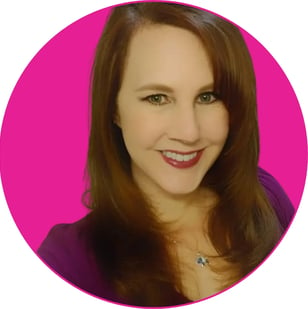Meet the Menopause Coach
Kari grew up on 90 acres in Iowa, where she loved caring for animals, leading to her active 4-H involvement. After earning a degree in education from Iowa State University, her career shifted from education to real estate all while raising two children alone after a divorce. A car accident in 2010 ended her real estate business, leading her to a successful recruiting career.
As she struggled with debilitating menopause symptoms, she realized the lack of medical understanding and found her true calling as a menopause coach, combining her passion for health with helping women navigate this life stage.
Kari Reed
Certified GGS Menopause Coach, Certified Menopause Lifestyle Coach, Certified Group Fitness instructor


MWG: Excited to learn from you, Kari. Do you have any particular areas of interest/specialty (within the wide range of menopausal symptoms/concerns)?
KR: Treating the whole person. Menopause isn't about this symptom or that symptom. It's a whole-person approach.
MWG: That makes a lot of sense. Most traditional MDs seem to focus on symptom relief rather than really looking at our entire metabolic and hormonal selves. So, what has been your own peri/menopausal experience that led you to this field?
KR: My menopause symptoms have been debilitating. Hot flashes, weight gain, sleepless nights to name a few. It was my own symptoms that lead to realizing that there isn't a lot of information out there for women in menopause and I made it my mission to not only help myself but to help women by understanding what is going on during the menopause transition and learning life hacks to help navigate those symptoms so women can start feeling like themselves again.
MWG: Indeed. So many women are struggling and overwhelmed with symptoms. How can you help us reframe the menopause experience as a journey of empowerment rather than a medical condition to be treated?
KR: First is understanding that you can take control. It's not your fault. There are a whole slew of reasons you are feeling this way. I can teach lifestyle changes that can be adopted to help reduce and sometimes even eliminate debilitating symptoms. I am not a doctor so I can't order and read blood work, but I can supplement the information with suggestions.
Menopause is not a one-size-fits-all experience. Every woman's experience is different. Which also means what works for one woman may not work for another. Doctors like to prescribe HRT and antidepressants, and it’s because they don't understand menopause; they’re not taught about it. They are primarily taught about the male body and OB-GYNs are taught about reproduction. Women spend 1/3 to 1/2 of their life in some stage of menopause and it just BLOWS MY MIND, that we are being brushed off as whiny or it's all in our heads. “Take two of these and call me in the morning doesn't work with menopause.”
MWG: That is so right on - and refreshing to hear, and that’s been our experience as well. How about another area that affects a lot of us: Do you have any strategies for navigating workplace challenges specific to menopausal women, like brain fog or hot flashes during important meetings?
KR: Is it a wonder that over half of women transitioning through menopause quit their jobs? Navigating menopause at work can feel isolating, especially since it’s rarely discussed. Women often fear stigma or being seen as unfit for their roles, particularly with male bosses.
To manage symptoms discreetly, use notes, calendars, schedules, Post-Its and other focus tools to combat brain fog or any ADD you may be experiencing. Wear breathable layers, so that you can take layers off during hot flashes and keep a fan or cold drink nearby. Take breaks when needed to combat hot flashes, and take walks at lunch to help reinvigorate your mind. Prioritize rest, hydration, and nutrition to minimize symptom intensity. Find a trusted colleague that you can lean on that understands what you’re going through.
You don’t need to disclose details to your boss to thrive in the workplace; focus on subtle strategies to maintain confidence and professionalism.
MWG: I really appreciate this. I’ve had such a hard time maintaining mental sharpness in menopause and yet I’m in a job that requires mental acuity and the ability to pay attention throughout meetings. I often find myself missing things or my mind lazily wandering because I just can’t seem to stay in the conversation. I work with a lot of younger people as well so it’s not a shared experience. So how do you think women can leverage the menopausal transition to reassess life goals and potentially pivot their careers?
Many women have spent their lives growing a career and growing their family. Many times women in menopause are juggling elderly parents, and may still have kids at home or they have become empty-nesters. Menopause is a time for personal reflection on values and passions or to realign their careers, go on well-deserved vacations or go back to school to pivot their careers. It really is a time of purpose-driven self-awareness, a time to leverage new energy and refocus on who they are and what they now want out of life.
MWG: Absolutely. Now it's all about us, for once. And how can we use this transition to improve our relationships, including our sex lives and family dynamics?
KR: This is a time for open communication and maybe even for setting new boundaries. Fifty percent of divorces happen during the menopause transition for a variety of reasons. One is not feeling valued or heard. Setting aside time for self-care is critical and learning to say no instead of saying yes is important for the menopausal woman's well-being.
We are not at our best if we are stretched and stressed. If you set your boundaries and you’re not being heard or understood you may want to lean on a group of women who understand your symptoms and get counseling. If counseling doesn't help your S.O. to understand, then you may need to consider a life change. Prioritizing yourself at this time of life is number one because let's face it, women put themselves after kids, career and spouses and during this time open communication is key. You can only control so much.
To increase intimacy with your partner try connecting through scheduling date nights or couple's activities. This is a time to renew and relearn because you have both changed over the years and your interests may have changed. Menopause is hard on male partners and spouses, too. He woke up one morning and was like, "Wow! I don't even know who this person is anymore." All you can do is be honest and open with each other and reignite the flame by dating each other again.
MWG: What are some unconventional methods you've found effective for managing menopause symptoms that most doctors don't discuss?
KR: I don't know that I would necessarily name them unconventional but acupuncture and reflexology to help reduce hot flashes. Functional nutrition to balance hormones, cold showers and ice packs to help cool down quickly. My favorite is to take a water bottle and freeze the water and then roll it on the bottom of your feet before bed. The feet have the largest pores in the body and the cool ice will help to cool the hot flashes. Using mind-body techniques like restorative yoga, hypnotherapy, meditation and breathwork to help manage mood swings and brain fog.
MWG: I love that water bottle on the feet thing. I’ll have to try it! Thanks for all the great intel, Kari.
Get in touch with Kari
Visit karireed.com for more information. You’ll also find her active in the Menopausal Woman’s Gab ‘n Gripe group on Facebook.
The views and opinions expressed by individuals interviewed on this website do not necessarily reflect their agreement with the content presented herein. The insights shared are for informational purposes only and should not be interpreted as an endorsement of the website's ideas or perspectives.
Explore helpful articles, tips, and advice for women who are losing their shit in menopause.
Community
Stay Connected
© 2024. Eclectic Content, Inc. All rights reserved.
